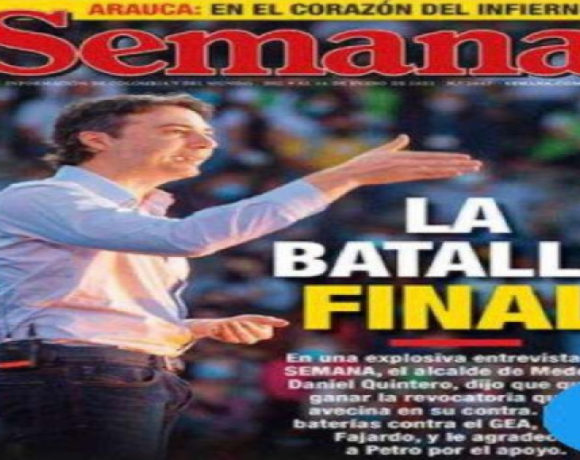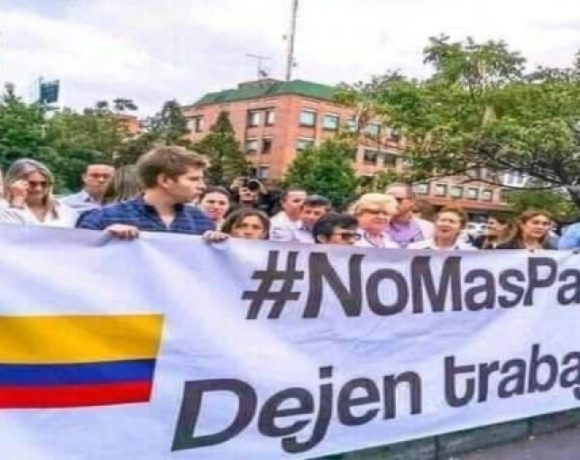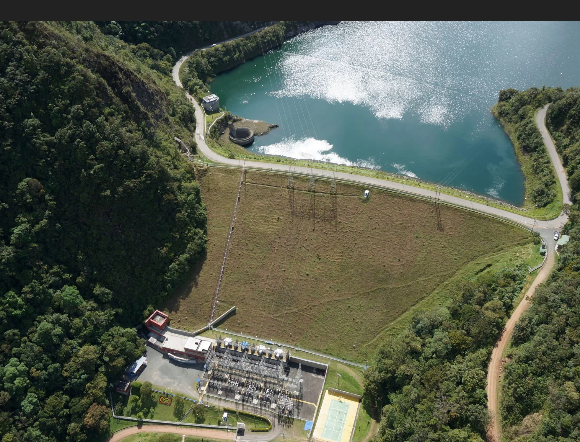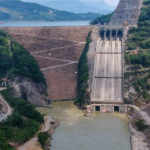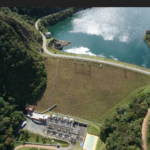Petro’s ‘Magical Surrealism’ Wins Colombia Presidency

With 100% of votes now counted, socialist-populist Gustavo Petro won Colombia’s presidency last night with 11.28 million votes (50.4%) versus 10.58 million votes (47.3%) for a similarly unbelievable populist, former Bucaramanga Mayor Rodolfo Hernandez.
Out of Colombia’s 39 million eligible voters, Petro won 28.9% of that total — meaning 71% of Colombia’s voters didn’t vote for Petro or fantastical social-spending promises.
Those spending promises provoked rival presidential candidate Sergio Fajardo – a mathematics professor – to show with detailed charts that Petro’s programs are in fact mathematically impossible, costing more than COP$130 trillion (US$33 billion) above the nation’s already debt-ridden economy, with no rational revenue-offsets proposed.
Having stagnated at 8.5 million votes last month in the first-round presidential voting — the same number he got in his losing 2018 presidential candidacy — Petro subsequently pivoted his messages more toward the center for the second round, mainly by recruiting well-known former Colombian economics expert Rudolf Hommes and Health Ministry expert Alejandro Gaviria to promised Cabinet positions.
Ironically, Gaviria only weeks prior had publicly described Petro’s proposed economic programs as “suicide for Colombia.”
Those chameleon moves — plus what Colombia’s mainsteam media described as one of the most corrupt and dishonest (but effective) campaigns in the nation’s history – successfully convinced another 2.7 million voters to roll the dice on Petro (the devil you know) versus Hernandez (the devil you don’t know).
Notably, the more rational, business-oriented Medellin and Antioquia areas once again voted overwhelmingly against Petro in this latest round, having earlier voted overwhelmingly for former Medellin Mayor Federico Gutierrez in the first round.
But voters in the more government-dependent cities including Bogota, Cartagena, Santa Marta and the Atlantic coast — along with the narco-dominated Pacific regions — tipped the scales for Petro.
In his rambling victory speech last night, Petro stated that “love” is the key to moving Colombia forward.
But it was class-hatred and lies that dominated Petro’s campaign messages, including the most outrageous lie – repeated through millions of corrupt, boiler-room social-media messages that he authorized– asserting that third-place presidential candidate Federico Gutierrez was a narco gangster.
In response, Colombia’s mainstream news magazine Semana published campaign videos — taken by a disgruntled Petro campaign worker — showing the extent of corruption and lying used by the Petro campaign, which news organizations across Colombia quickly dubbed as “Petrovideos.”
But the “Petrovideos” scandal wasn’t enough to convince enough voters to choose Hernandez over Petro. In what could be compared to a story by Nobel prize-winning novelist Gabriel Garcia Marquez, the voting result can now only be described as “magical surrealism.”
Among the fantastical Petro campaign promises, which will face an uncertain fate in Colombia’s divided Congress, starting this August:
Giving government jobs to 3 million unemployed people, without any rhyme, reason or viable funding source;
Accelerating the destruction of Colombia’s fiscally crucial oil-and-gas industry;
Buying all of Colombia’s coal output and letting it sit unused (supposedly to fight climate change);
Building an economically incoherent, multi-billion-dollar freight-rail network that supposedly would offload containers in the Pacific and then ship them overland through Colombia’s eastern plains to the Atlantic (even though shippers inevitably would employ the far-cheaper Panama Canal option);
Building a passenger rail line to Venezuela, without any logical reason given;
Confiscating the pensions of 18 million tax-paying Colombians in order to give pensions to people who never contributed anything to any pension fund;
Converting Colombia’s flawed-but-improving mixed, public-private health system to a vastly underfunded, government-run system; and
Telling Colombia’s Attorney-General to set free “young people” from Colombia’s jails, claiming that they were all imprisoned unjustly during the violent riots that Petro helped provoke in 2021.

